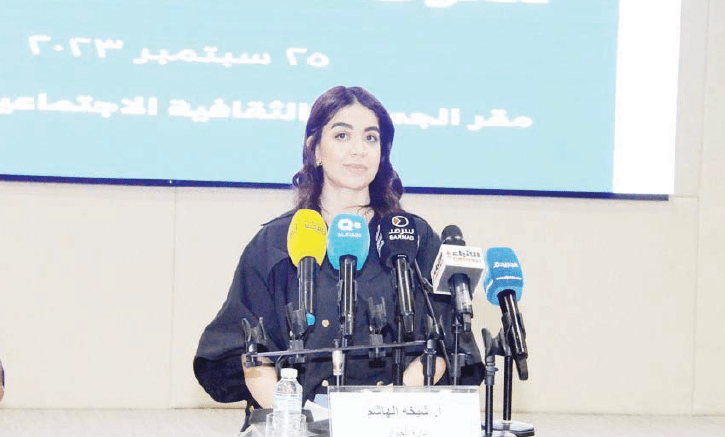26/09/2023
26/09/2023

KUWAIT CITY, Sept 26: Activists recently gathered at a ceremony, in which more than 25 associations and civil societies participated, to stand united in front of those demanding the implementation of the law banning coeducation and their interpretations of it, as it supports gender discrimination. According to educational experts, the decline in the level of education in Kuwait can be attributed to the emergence of the religious hardliner's movement in the 1980s, which changed the curricula and contributed to the destruction of education with their random decisions.
During the speech festival organized by the Kuwaiti Women’s Cultural Society, the constitutional expert and professor of law at Kuwait University Dr. Ibrahim Al- Hamoud rejected the infringement of the Constitutional Court, which indicated that the law banning co-education issued in 1996 did not require the presence of buildings to separate male and female students in the classrooms. Rather, the goal is to separate them within the halls. Also, there is no definition in Islamic jurisprudence for the concept of non-mixing. He stressed that the parliament’s Ethics Committee does not have the mandate of talking about educational matters. Dr. Al-Hamoud said he wondered about the role of the Education Committee within the National Assembly.
Meanwhile, Head of the Kuwait Social Association Abdullah Al-Radwan affirmed that implementing the law that bans co-education at the university would cost the state more than two and a half billion dollars, as it would inevitably lead to an increase in facilities, an increase in the school day, and an increase in teaching staff members, in contrast to the student overcrowding in the halls. He stressed that the presence of 70 percent of female students in Kuwait University will inevitably lead to delayed graduation for the male students. Al-Radwan said the decision to ban co-education in universities is considered as gender discrimination, especially since mixing is widespread in all government departments. He indicated that the decline in education in Kuwait began during the 1980s with the emergence of the hardliners’ movements, which changed the curricula and contributed to the destruction of the education sector due to their random decisions.
On behalf of the Private Schools Union, Ghada Al-Khalaf rejected parliamentary interference in educational policies. She stressed that priorities require attention to the quality of education, and the need for stability within the educational process, as well as the need to focus on leaders with experience in the educational sector.
Furthermore, Professor of Philosophy at Kuwait University Dr. Sheikha Al-Jassim revealed the suffering faced by faculty members and students due to intransigence in implementing the decision to ban co-education. She said the government’s acquiescence confirms its weakness or its complicity in the betrayal of education, adding that they have become like those striving between Safa and Marwa on campus due to political interference in the educational process. As for the journalist Khaled Al-Tarrah, he stressed that the civil forces will confront anyone who tampers with the educational process in this way, especially by the hardline religious movement, and he held the Prime Minister responsible for this. Al-Tarrah said, “Simply agreeing to their decisions to ban co-education will inevitably lead to increased interference in the educational process”.
Meanwhile, Musad Al-Shuwaird, who was one of those who appealed against the law prohibiting co-education in the university, said he filed the appeal in 2015 when he was studying in the College of Administrative Sciences due to the presence of a class session for male students and another for female students, and he was unable to access a specific course session. He indicated that the law did not specify the separation. In addition, a student and the Vice President of the Democratic Youth Union Muhammad Al-Issa revealed that they, as students, reject the guardianship of education by religious movements. Muhammad Al-Asfour from the Democratic Center List said he believes the goal of some parliamentarians behind their insistence on interfering in the educational process is to satisfy their electoral base and the parties to which they belong. Even though the university is an independent body, they explained that this hardline movement is allied with the government against the educational process. By Najeh Bilal Al-Seyassah Staff


